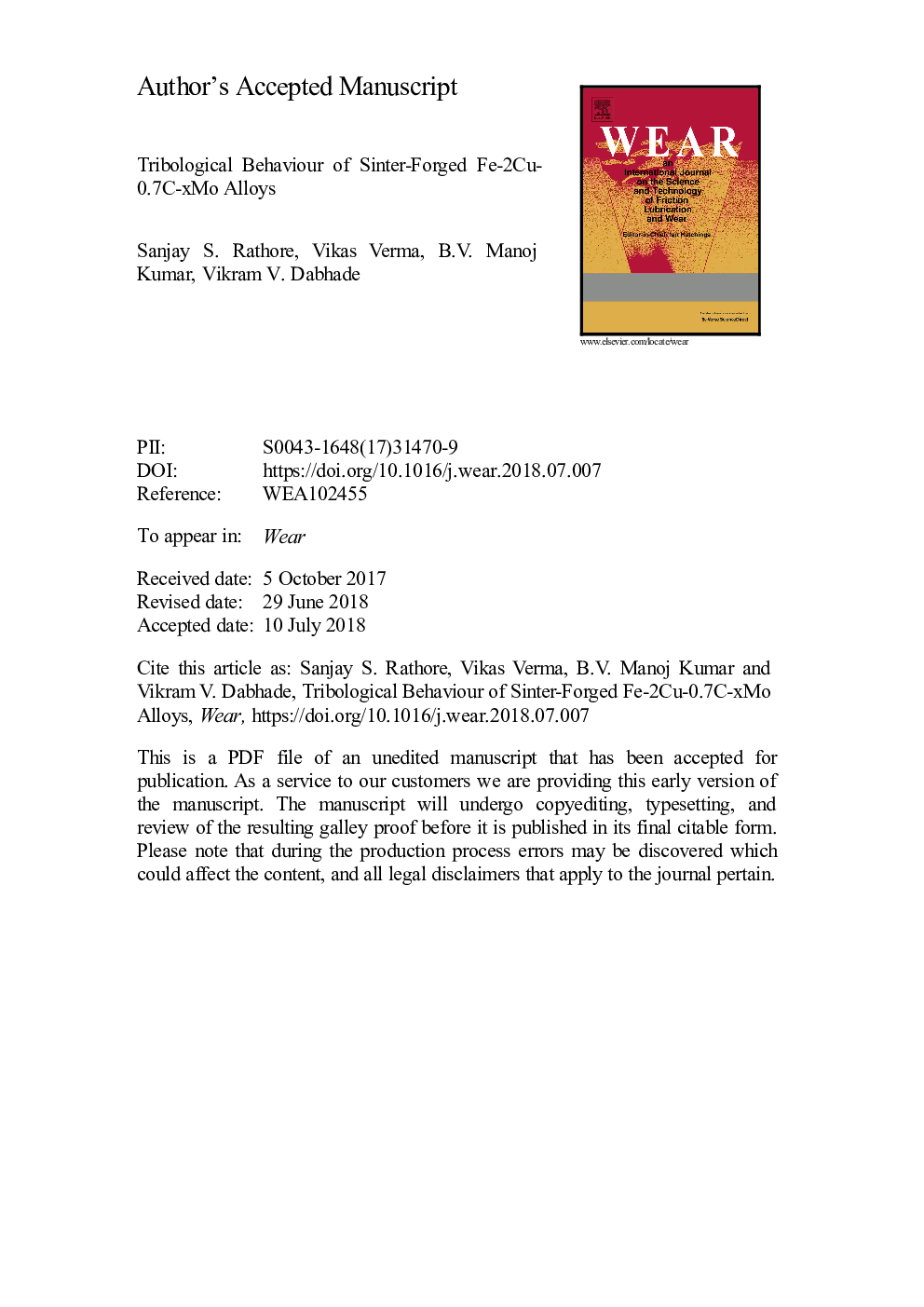| Article ID | Journal | Published Year | Pages | File Type |
|---|---|---|---|---|
| 7003761 | Wear | 2018 | 27 Pages |
Abstract
The paper presents dry sliding wear behaviour of sinter-forged Fe-2Cu-0.7C-xMo alloys wherein effect of Mo addition and heat treatments have been investigated. Three alloy (1, 2 and 3) compositions; 0â¯wt% Mo (Fe-2Cu-0.7C), 1.5â¯wt% Mo (Fe-2Cu-0.7C-1.5Mo) and 3â¯wt% Mo (Fe-2Cu-0.7C-3Mo) have been fabricated by sinter-forging route to full density using elemental powders. All three compositions under normalised condition have been tested to study the influence of Mo addition on wear behaviour of base alloy Fe-2Cu-0.7C whereas the influence of different heat treatments on wear behaviour has been determined on the intermediate alloy composition (Alloy 2) i.e. Fe-2Cu-0.7C-1.5Mo under four heat treatment conditions i.e. annealed, normalised, quenched and quenched plus tempered condition. Wear tests have been performed using a ball-on-disk type tribometer at a fixed load of 10â¯N and constant speed of 500â¯rpm for 20â¯min with track diameter of 6â¯mm. High Cr bearing grade steel balls of 10â¯mm diameter and Rockwell hardness of 58-60 HRC were used as the counter material. The wear behaviour was observed as a complex function of strength, ductility and microstructure which was influenced by both Mo addition and heat treatment conditions. Wear mechanism was found to change with Mo addition. Addition of Mo in Fe-2Cu-0.7C alloy promotes oxidative wear as dominating wear mechanism in place of adhesion and consequently showed lower wear loss. The 3â¯wt% Mo alloy in normalised condition exhibited highest wear resistance while 1.5â¯wt% Mo alloy in quenched condition showed highest wear volume. The microstructural features also affected wear behaviour; bainitic structure showed high wear resistance compared to martensitic structure.
Related Topics
Physical Sciences and Engineering
Chemical Engineering
Colloid and Surface Chemistry
Authors
Sanjay S. Rathore, Vikas Verma, B.V. Manoj Kumar, Vikram V. Dabhade,
